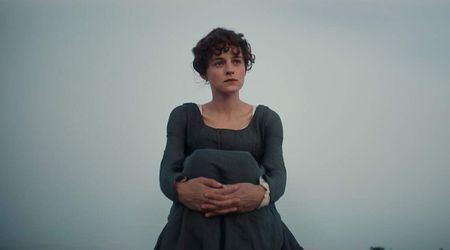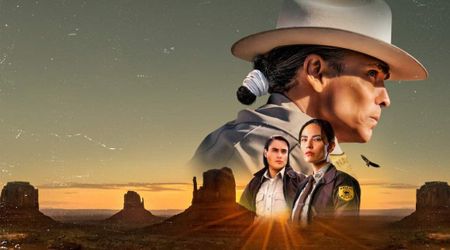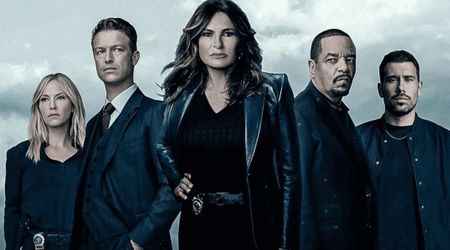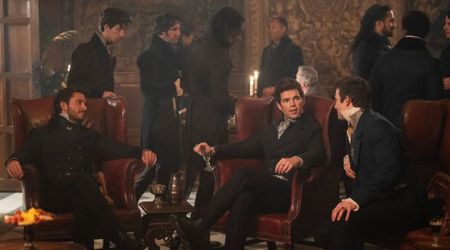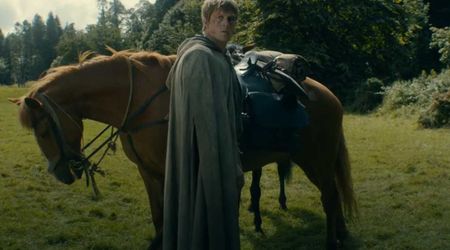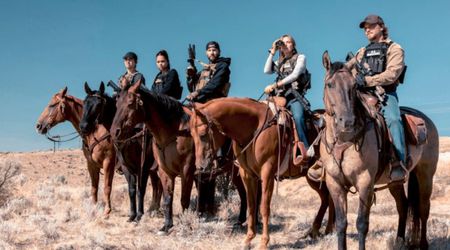Netflix's 'The Spy': Sacha Baron Cohen's undercover personas Ali G, Borat, helped portray real-life spy Eli Cohen

You could say Sacha Baron Cohen has been preparing his whole life for Netflix's 'The Spy'. It connects to one of Sacha's earliest childhood memories in London where, in his family's living room, was a book titled 'Our Man in Damascus'.
His chameleon-like abilities have usually been channeled into comic alter egos like Ali G, Borat and Bruno or his many personas on 'Who is America' to dupe unsuspecting interviewees into a verbal corner. But in 'The Spy', he channels the real-life chameleon, Eli Cohen, a Mossad agent, who, as his cover identity as Kamel Amin Thaabet, infiltrated the highest levels of the Syrian political and military hierarchy.
The miniseries is being hailed as a breakthrough of sorts for Sacha Baron Cohen because it is his first serious role as a leading man. This shift has drawn comparisons to comedians before him like the late Robin Williams or Jim Carrey who stretched their dramatic legs into productions that were a drastic jump from their well-established, existing on-screen personas.
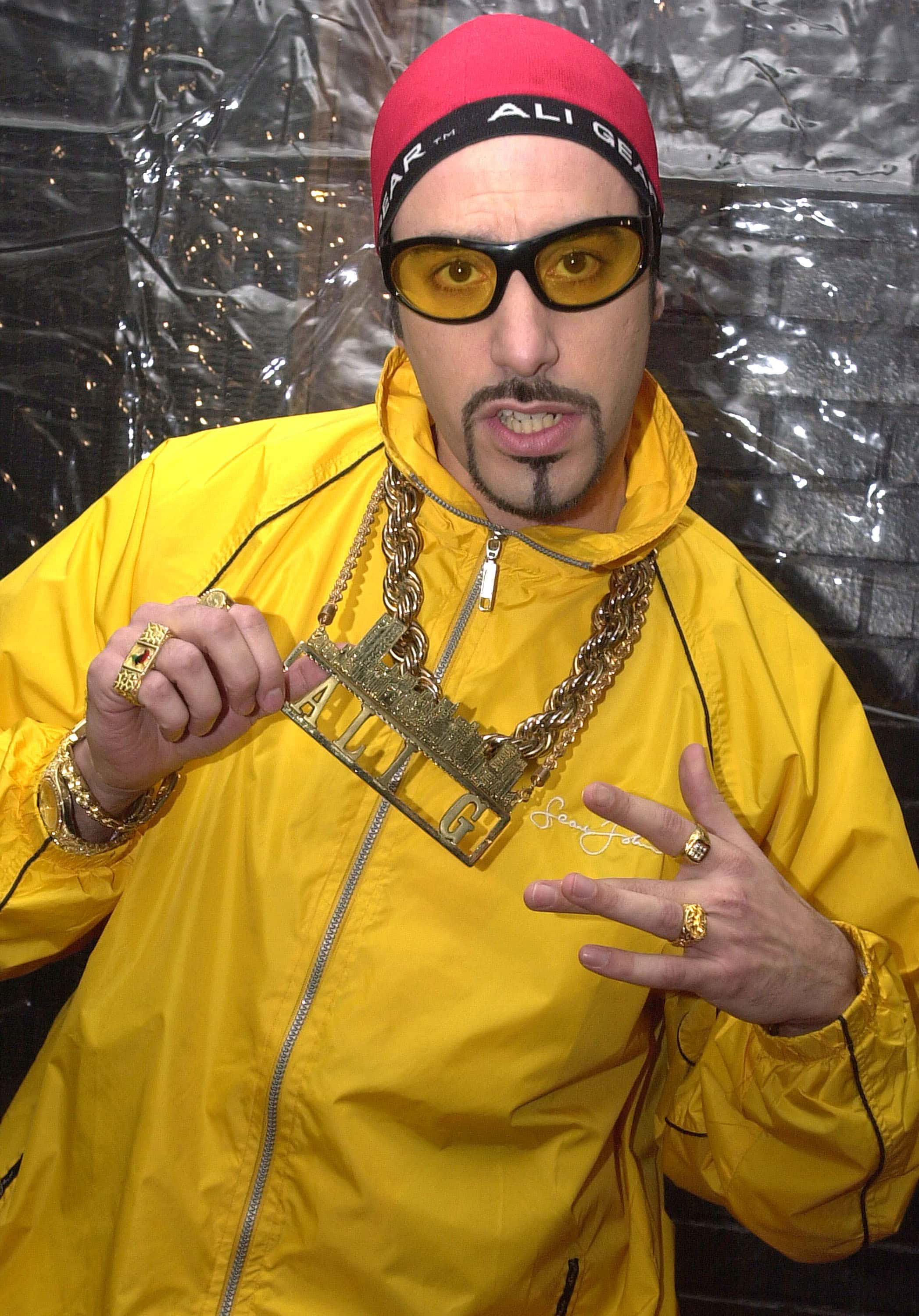
But for Sacha, 'The Spy' is not as much as a jump as it is a lateral shift because we really don't know who Sacha Baron Cohen is. One Vanity Fair article compared him to an "earnest Eastern European professor who had time-traveled from the 1980s". Sacha, who sees Peter Sellers as his comic idol, rarely appears out of character, except for brief red carpet appearances or interviews.
In an NPR interview, he recalls a particular moment of "real pleasure" when he was standing (in his Borat disguise) in front of a shop selling Ali G videos, surrounded by Ali G fans, who did not recognize him. Speaking of the similarities between his undercover work as a comedian and spycraft, he told USA Today: "If I make a mistake, if there’s a tell, the interview has ended and the subject walks out. A lot of what I do when I’m in character is I am trying to read the other person… which obviously Eli [Cohen] was doing as well.”
Sacha's brand of comedy, which he calls "draining", "dangerous" and "often unrewarding", uses flamboyance and outre remarks to distract and lower inhibitions as he turns the camera on his "victims." His breakthrough role was Ali G, where he parodied the suburban white "chav" using the typical speech taken from urban black British hip hop culture mixed with Jamaican patois.
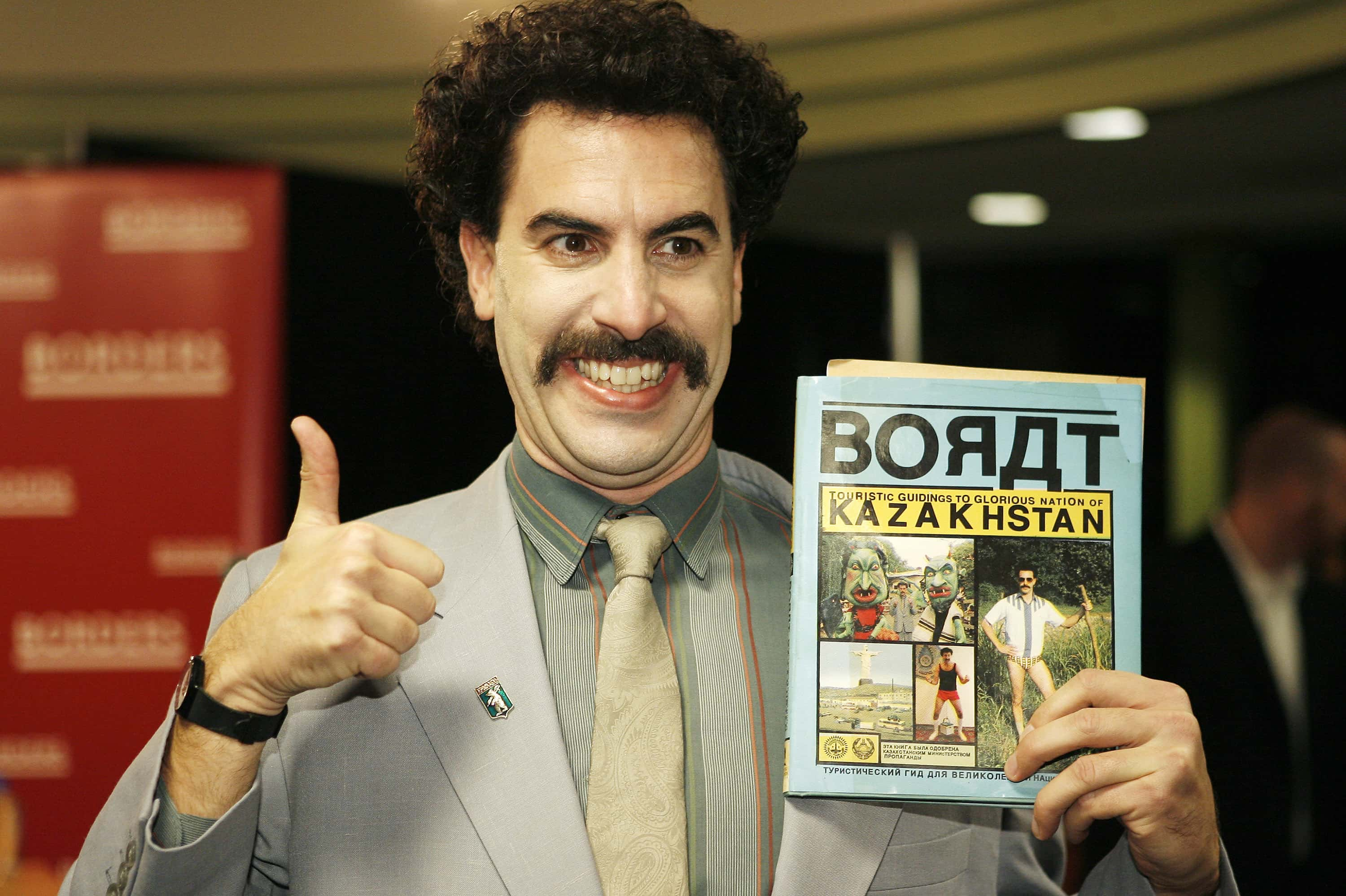
Under the guise, he wielded ignorance and political incorrectness to create "the awkward interview", which has become a style of comedy in itself. His unsuspecting interviewees included Donald Trump who wished him best of luck for his "ice cream gloves" business; Buzz Aldrin, who Ali G asked about being "jealous of Louis Armstrong"; Gore Vidal who he mistakes for the hairstylist Vidal Sassoon; Naomi Wolf who he compliments saying she could be a prostitute because she is attractive and linguist Noam Chomsky who he asks, “How many words does you know?” and “What is some of them?”. Chomsky reportedly told his assistant with a sigh, "no more men in gold suits."
Though the character was fictional, Sacha quickly realized he could fool people into thinking he was for real. And with that came his turn towards the mockumentary style to expose societal hypocrisies. It started with 'Borat: Cultural Learnings of America for Make Benefit Glorious Nation of Kazakhstan' (2006).
In it, he provided faux cultural commentary on America as the Kazakh outsider while accidentally uncovering its underbelly depicting antisemitism, homophobia, sexism and racism among the people he interacted with. No one, except Pamela Anderson, was in on the joke.
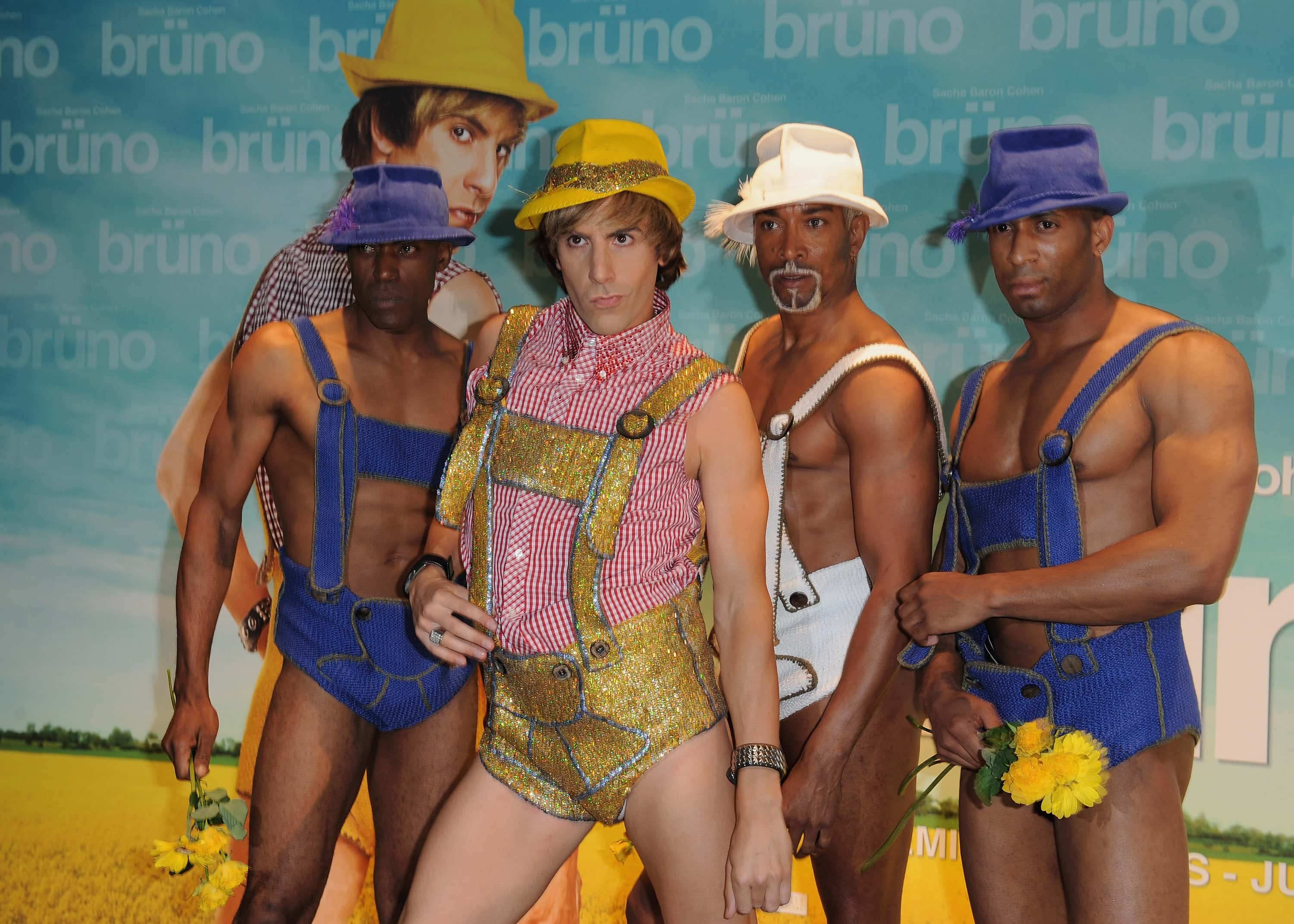
In an interview with the Rolling Stone, Sacha revealed "Borat essentially works a tool. By pretending to be anti-Semitic, he lets people lower their guard and expose their own prejudice." It was a tactic he reused in the film 'Brüno' (2009), where he plays the titular character. Unofficially, the film was known as 'Brüno: Delicious Journeys Through America for the Purpose of Making Heterosexual Males Visibly Uncomfortable in the Presence of a Gay Foreigner in a Mesh T-Shirt'.
While the effects on-screen were hilarious, Sacha recently revealed in the USA Today interview that it was "incredibly consuming in every aspect." He explained that while shooting undercover films, from 'Brüno' to Showtime's 'Who is America' (2018) where he interviewed prominent personalities like Sarah Palin and O.J. Simpson, he was "living a fairly miserable life". He added that while it was rewarding when his work produced good interviews, "the process itself [was] not fun".
In comparison, his movie roles where he doesn't have to actively dupe people, have been a little less taxing, from the comedy 'Brothers Grimsby' (2016) to character pieces like Time in 'Alice Through The Looking Glass' (2016) or the despicable villains of musicals like 'The Demon Barber of Fleet Street' (2007) and 'Les Miserables' (2012).
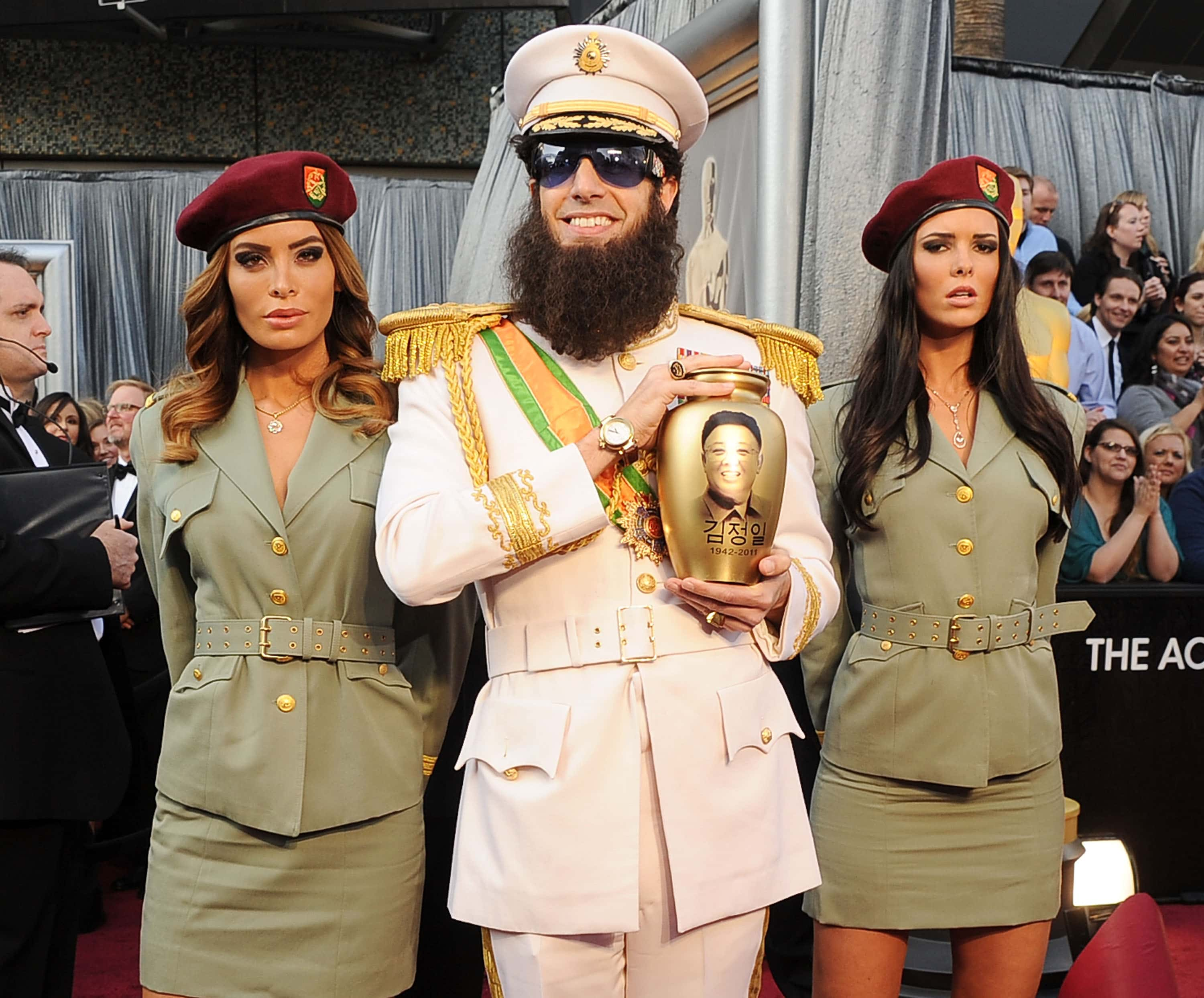
But in all his varied filmography, he has only twice flirted with commentary around politics that affects Israel before his starring role in 'The Spy'. The first was in the film 'The Dictator' (2012), where he played Admiral-General Haffaz Aladeen, the despot of a North African dictatorship who sheltered Osama Bin Laden and was developing nukes to bomb Israel.
By the end of the film, he has ushered in democracy and married a Jewish woman. And then there was 'Colonel Erran Morad', the Mossad agent and anti-terrorist expert on 'Who is America' (2018). Sacha's Morad accurately captured the stereotypical gruff Israeli military man.
But he also exploited the stereotypes most Americans harbor about Israel, like it being a gun-totting paradise because it had to be strong on defense. Morad not only fooled Dick Cheney into signing his "waterboarding kit" but also successfully got clearance for a plan to arm kindergarten kids.
In real life, Sacha has donated money to help Syrian refugees, revealing in the Vanity Fair interview that "the neglect of Syria" had fascinated him as well as "what Assad has been able to get away with". To him, 'The Spy' was the "origin story of Bashar al-Assad".
But curiously, he has downplayed the political aspects of the film in press interviews, describing it instead as a "human story" of someone who was willing to give up everything for his country. However, 'The Spy' shows Sacha performs his best undercover work when he is the outsider looking in rather than playing the straight man in a story that is too close to home.
The actor will be seen next in 'The Trial of the Chicago 7,' currently in pre-production, in another serious role. The film, directed by Aaron Sorkin, will portray the events of the 1968 Democratic National Convention in Chicago, where there were massive demonstrations against the Vietnam War and a police riot.
Seven of the anti-war demonstrators were tried for conspiracy. The film shows the trial of these seven protestors with Sacha portraying Abbie Hoffman, one of the protestors. Hopefully, Sorkin's script will give the serious Sacha more to work with than Gideon Raff's 'The Spy'.


